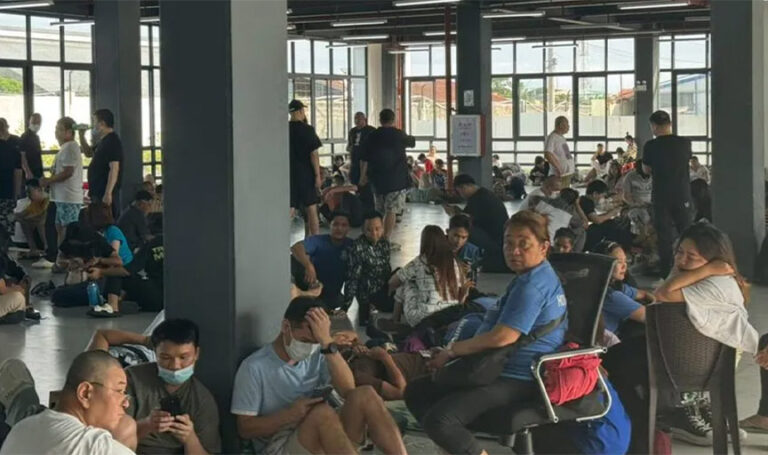Police rescue over 800 good-looking people lured into human trafficking love scam centre

On 14 March 2024, police in the Philippines conducted a lengthy rescue operation, saving hundreds of individuals who had been lured into a “love scam” centre under the guise of a legitimate employment opportunity.
According to the BBC, the victims were initially attracted to a compound located approximately 60 miles north of Manila under the pretext of legitimate employment. However, upon their arrival, they were stripped of their passports by human traffickers and coerced into participating in online love scams.
Disguised as an online gambling company, the centre lured and trapped “good-looking” men and women in order to attract as many romantic partners online as possible and then scam the unknowing victims into investing in fake and fraudulent business schemes.
Gilberto Cruz, an executive director involved in the raid revealed that those who failed to meet their assigned quotas faced physical abuse, sleep deprivation, or confinement within their rooms, as reported by The Telegraph.
When authorities conducted the raid on the centre they were able to extract and rescue a total of 383 Filipinos, 202 Chinese, and 73 other foreign nationals. The police were tipped off about the centre after one Vietnamese man managed to escape the compound last month.
Interestingly, the prevalence of scam centres in Southeast Asia has emerged as a concerning trend, where not only victims but also the scammers themselves are often coerced and manipulated into engaging in criminal activities.
Many young and digitally adept individuals fall prey to running these illicit operations, which span from money laundering and cryptocurrency fraud to love scams or pig butchering scams, the latter named after the farming practice of fattening pigs before slaughter.
@itvnews What is pig butchering? The four most 'devious' new scams worrying experts #itv #itvnews #scam #pigbutcherscam
♬ original sound - itvnews - itvnews
This practice begins with the scammer assuming a false identity to win the victim’s affection and confidence. They then exploit the illusion of a romantic or intimate connection to deceive or defraud the victim.
Winston Casio, a spokesperson for the Presidential Commission Against Organised Crime, revealed to the BBC that the people who were trapped in the centre were forced to send “sweet nothings” to their victims, many of whom were Chinese. Casio also revealed they would check in on their recipients with questions about their day and if and what they had eaten for their last meal. They would also send photos of themselves to cultivate the relationship.
The unnamed man who was able to successfully escape the facility did so by scaling a wall, traversing a river, and finding sanctuary at a nearby farm. Subsequently, the farm owner notified the authorities of the man’s arrival. When he was examined by authorities, it became evident that he had endured torture, bearing numerous scars and marks from electrocution on his body.
The majority of those rescued during the operation were of Chinese or Filipino nationality. Additionally, police discovered a cache of weapons at the scene. Furthermore, eight individuals were apprehended on suspicion of engaging in human trafficking.
According to a 2023 report by the United Nations Office on Drugs and Crime (UNODC), human trafficking for coerced involvement in criminal activities, particularly online scams and financial fraud, is an emerging and expanding phenomenon in Southeast Asia.
The report underscores the substantial influence of organised crime syndicates in fueling this phenomenon, pointing out that in a particular country, the fraudulent industry could yield profits estimated between $7.5 billion to $12.5 billion—roughly equivalent to half of the nation’s GDP.
Furthermore, the report emphasised that individuals rescued from scam centres originate from diverse regions globally, spanning Asia, Africa, the Middle East, and South America, highlighting the broad scope of the problem.
As of now, the investigation is still in its preliminary phase as many of the individuals rescued during Thursday’s raid are still experiencing emotional distress. In May 2023, Philippine officials liberated over 1,000 individuals who were unlawfully detained and coerced into operating online scams within a freeport zone in Clark, a city situated north of Manila. This operation remains the largest bust to date in the area. However, as these illicit operations become more widespread, the situation is likely to worsen.





